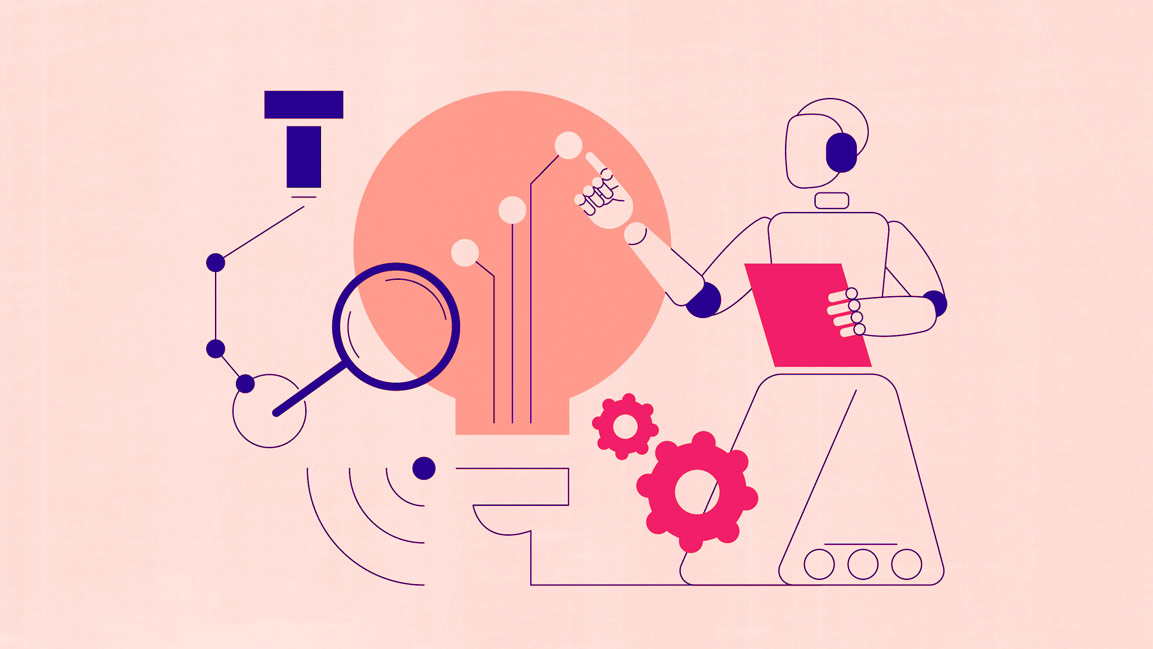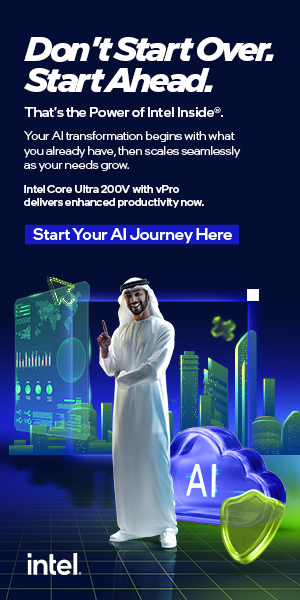How Appian is Helping Organizations Jump on the AI Bandwagon
The most effective way to create real value is to embed AI directly into business workflows, rather than just limiting AI to chatbots or co-pilots to respond to prompts, says Mohammad Abusinnah of Appian.
News
- In the UAE, Business Leaders View Uncertainty as an Opportunity, IBM Report Finds
- 17.5 Mn Instagram Accounts Compromised In Massive Data Leak: Report
- US Brings Qatar and UAE Into Silicon-Focused Economic Security Framework
- OpenAI Acqui-hires Convogo Team, Shuts Down Leadership Software Product
- Google Brings Gemini AI Features to Gmail
- Gemini’s Quiet 2025 Win: Eroding ChatGPT’s Traffic Share

[Image source: Chetan Jha/MITSMR Middle East]
Artificial intelligence is one technology that no organization, irrespective of size, industry, or demography, can afford to overlook today. With MarketsandMarkets predicting the global AI market size to grow from USD 371.71 billion in 2025 to USD 2,407.02 billion by 2032, the question arises: what is the right way to embed AI into core processes where value is created?
For Mohammad Abusinnah, account executive for Appian, there isn’t a linear roadmap that one can follow. “We have observed that our customers typically embed AI into already automated workflows, using it as an additional booster of efficiency. This way, AI doesn’t stand alone but becomes part of an orchestrated team, playing a specialized role, interacting seamlessly with employees, systems, and data resources,” he says, adding that this approach works across diverse processes—from customer onboarding to procure-to-pay cycle management.
The most effective way to create real value is to embed AI directly into business workflows, rather than just limiting AI to chatbots or co-pilots to respond to prompts. For instance, AI can streamline citizen onboarding processes in government services, speed up risk checks and approval processes for financial institutions, and reduce delays and manual effort in supply chain and procurement processes.
Real World Metrics
Is AI adoption truly bringing a revolutionary change that we deem it to bring? Abusinnah feels that to assess whether AI is truly improving process outcomes versus simply automating tasks faster is to look for real-world results “for the people and processes it touches.”
US-based behavioral healthcare company Acclaim Autism, for instance, took three to six months for its patient onboarding process, making it a tedious-manual process that created frustration for families. By integrating generative AI (GenAI) into their existing Appian onboarding application, they were able to automatically extract data with 95% accuracy, reducing the waiting time to a month. “That’s the key: when you measure AI’s success, don’t just track the speed of tasks. Look at how it improves outcomes—reducing errors, shortening cycle times, increasing compliance, and ultimately delivering better value for customers, patients, or employees,” he said.
Middle East Mindset
In the adapting technological landscape, AI agents (autonomous software systems) are gaining traction. They can perceive their environment, make decisions, and act to achieve goals without constant human intervention. Abusinnah feels there is a clear shift in the region when it comes to AI agents and how processes are evolving. “Traditional process design has always been static, fixed rules, predefined paths, and little flexibility. With AI agents, that’s changing.” Rather than using a one-size-fits-all approach to every case it handles, AI agents bring adaptability by analyzing context, data, and patterns in real time to decide the next best action.
“For Middle Eastern enterprises and government entities, this adaptability is critical. Regulations evolve, customer expectations rise, and data volumes grow,” he notes. Appian is helping organizations move from ‘process automation’ to ‘process intelligence’ by embedding AI agents into their workflows. “The result is faster decisions, fewer errors, and the ability to continuously improve without redesigning the whole process each time.”
The Middle East and Africa process automation market, valued at approximately USD 17.12 billion in 2024, is expected to touch USD 28.15 billion by 2034, as per Research and Markets. “When we look at industries in the Middle East, the sectors most ready to adopt intelligent workflows at scale are those where digital transformation is already a top priority,” he says. For industries handling vast amounts of transactions and customer interactions, such as financial services, telecommunications, and government services, automation and AI-driven workflows are a natural accelerator for efficiency, compliance, and customer experience.
Meanwhile, healthcare and energy demonstrate strong potential. “In healthcare, the pressure to deliver accessible, high-quality care is driving interest in intelligent automation. In energy, the push for operational efficiency and sustainability creates fertile ground for adopting smarter workflows.” Instead of reengineering everything from scratch, AI is plugged directly into the processes that already exist—extracting data, making recommendations, and automating decisions in real time.
Looming Concerns
While adopting AI workflows becomes the need of the hour, concerns persist. “The biggest barriers often relate to data security, regulatory compliance, and trust,” he said.
In its July report, IBM revealed that the average cost of a data breach for businesses in the Middle East reached SAR 27.00 million, down 12 per cent year-on-year, and factors such as AI/ML-driven insights, encryption, and DevSecOps reduced breach costs for local businesses.
“Across the region, new and evolving regulations are making organizations think carefully about how data is stored, shared, and processed with AI. This is especially important in highly regulated sectors like finance and healthcare, where protecting sensitive data while ensuring compliance is critical,” Abusinnah adds.
Conversations are moving from ‘can we automate?’ to ‘how do we embed intelligent workflows in a way that is secure, transparent, and aligned with local regulations,’ with only those who combine innovation with governance and trust emerging successfully.
Explainability, the ability of AI systems to provide clear and understandable explanations for their actions and decisions, is another hurdle when it comes to AI adoption. Explainability is crucial for trust, compliance, and adoption; if business leaders, regulators, or even employees cannot understand why a decision was made, it undermines confidence and increases risk.
“Companies need a framework where AI recommendations are not ‘black boxes’ but auditable steps that align with business logic,” he says.
By combining AI with strong process orchestration and governance controls, Appian helps organizations scale autonomous workflows without losing control. By ensuring every AI-driven decision is contextualized with traceable reasoning, customers can embrace autonomy confidently, balancing innovation with accountability.








